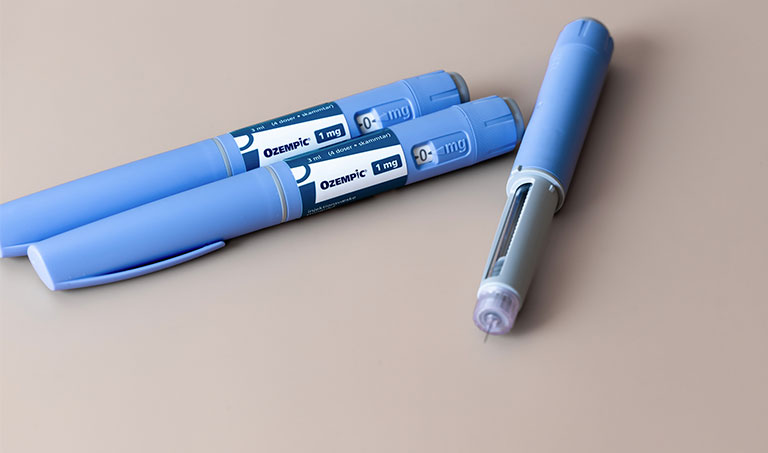The quest for effective weight loss solutions has led to the exploration of various medications, including a weight loss diabetes drug. These drugs, originally developed to manage diabetes, have shown promise in helping individuals lose weight. This article examines the safety and efficacy of using diabetes drugs for weight loss, the science behind how they work, and who might be the best candidates for this type of treatment.
Understanding Weight Loss Diabetes Drugs
Weight loss diabetes drugs operate by mimicking incretin hormones that regulate blood sugar levels and appetite. By enhancing the body’s natural responses to food, these medications can lead to reduced appetite and slower gastric emptying. This dual action not only aids in managing blood glucose levels but also contributes to weight loss.
These drugs include a class known as GLP-1 receptor agonists, with medications like liraglutide (Saxenda) and semaglutide (Wegovy) gaining popularity. Their use has expanded beyond diabetes management to include weight loss in individuals with or without diabetes.
The Safety Profile
The safety of weight loss diabetes drugs has been a topic of discussion among healthcare professionals. Common side effects include gastrointestinal symptoms such as nausea, diarrhea, and constipation. However, these are generally mild and diminish over time.
Serious side effects are rare but can occur, including pancreatitis and thyroid cancer. Patients considering these medications should have a thorough discussion with their healthcare provider to understand the potential risks and benefits.
Efficacy and Expectations
The effectiveness of weight loss diabetes drugs has been demonstrated in clinical trials, with participants undergoing substantial weight loss. For example, individuals taking semaglutide can shed up to 15% of their body weight, according to studies. The success of these drugs in weight loss is linked to their ability to reduce appetite and increase feelings of fullness.
However, it is important to set realistic expectations. These medications are most effective when combined with lifestyle changes, such as a healthy diet and regular exercise.
Who Should Consider These Drugs?
Not everyone is a suitable candidate for weight loss diabetes drugs. Typically, these medications are prescribed to individuals with a body mass index (BMI) of 30 or higher, or a BMI of 27 or higher with at least one weight-related health condition, such as type 2 diabetes or hypertension.
It is crucial for patients to undergo a thorough medical evaluation to determine if they are good candidates for this type of weight loss treatment.
Combining Medication with Lifestyle Changes
For optimal results, weight loss diabetes drugs should be part of a comprehensive weight loss plan that includes lifestyle modifications. Regular physical activity and a balanced diet are essential components of a successful weight loss strategy. Patients should work closely with their healthcare providers to create a plan that addresses their specific needs and health goals.
Partnering with Optimal Health for Weight Loss Success
At Optimal Health, we understand the complexities of weight loss and the role that medication can play in achieving your health goals. Our weight loss treatment is tailored to meet the unique needs of each patient, incorporating the latest advancements in medication, nutrition, and exercise.
Whether you are considering a weight loss diabetes drug or seeking alternative strategies, our team of experts is here to support you on your journey to optimal health. Contact us today to learn more about how we can help you achieve sustainable weight loss and improve your overall well-being.

